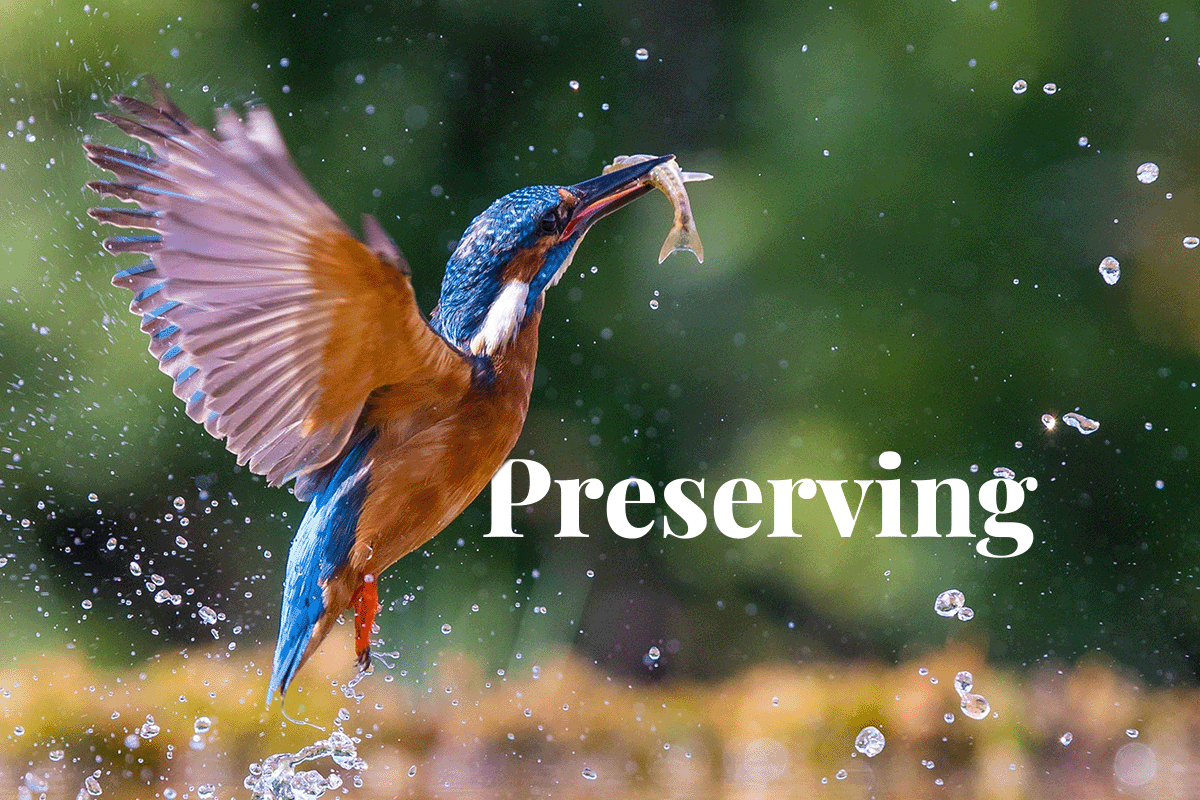The urgent need to reverse the environmental damage caused by decades of human activity has prompted asset manager Fidelity International to call for a significant shift in capital towards biodiversity conservation. Velislava Dimitrova, a co-portfolio manager for global funds at Fidelity, asserts that investing in biodiversity is ‘the largest investment megatrend of our lifetime.’
 Kingfisher bird hunting fish, Bangladesh.
Kingfisher bird hunting fish, Bangladesh.
According to the UN Environment Programme, an estimated $8.8 trillion in cumulative investments will be required by 2050 to effectively manage biodiversity risks and safeguard our planet's natural ecosystems. Dimitrova emphasised this during a recent Fidelity panel discussion titled 'Nature Positive: the new Net Zero’. She highlighted specific investment opportunities in biodiversity, such as precision agriculture and green hydrogen in energy, and stressed the need for policy changes to protect natural capital, such as implementing higher taxation on virgin plastics.
Jenn-Hui Tan, Fidelity's global head of sustainable investing, shared disheartening data on the magnitude of biodiversity loss over the past five decades. Latin America alone has witnessed a devastating 94% decline in its vertebrate population, while tropical rainforest cover has been dwindling at a rate equivalent to ten football pitches per minute in 2021.
Read more: Bridging the gap: How a circular economy can save biodiversity
To tackle these challenges, Tan advocated for a ‘nature positive’ approach, aiming to halt and reverse nature loss by 2030, with a full recovery targeted by 2050. He emphasised the role of businesses and society at large in achieving this ambitious goal. Tan also highlighted the Taskforce on Nature-related Financial Disclosures (TNFD) as a possible market standard for biodiversity risk management and reporting frameworks, urging companies and financial institutions to adapt and prepare for rising compliance costs.
With $663 billion in assets under management, Fidelity International has been developing comprehensive frameworks to address sustainability concerns. Gabriel Wilson-Otto, the lead designer overseeing these efforts, specifically mentioned the importance of its deforestation framework, recognising its critical role in combating biodiversity loss and contributing to climate-positive solutions.
Read more: The rising demand for nature-based credits
In its commitment to sustainability, Fidelity's annual Sustainable Investing Report for 2023 revealed extensive engagement efforts, including voting against management in 44% of company meetings and engaging with 1,548 companies globally.
By launching the Nature Positive report, Fidelity further introduced a thematic engagement programme to accelerate thermal coal's phase-out. The programme seeks to eliminate thermal coal in the Organisation for Economic Co-operation and Development (OECD) markets by 2030 and globally by 2040, aligning with the net zero by 2050–scenario outlined by the International Energy Agency (IEA).
DGB Group's mission perfectly aligns with the critical need to protect our planet's intricate web of life. Through our dedication to harnessing nature's power and implementing sustainable practices, DGB not only contributes to biodiversity preservation but also fosters a harmonious coexistence between humans and the natural world.
In a world facing escalating challenges to biodiversity, organisations like DGB play a crucial role in shaping a future where the marvels of biodiversity continue to flourish. By embracing nature-based solutions and cultivating a profound appreciation for the intricacies of our ecosystems, we can pave the way for a sustainable and thriving planet that will benefit future generations. Together, let us strive towards a future where biodiversity thrives, and our planet remains vibrant for years to come.
Take the first step of change with DGB

